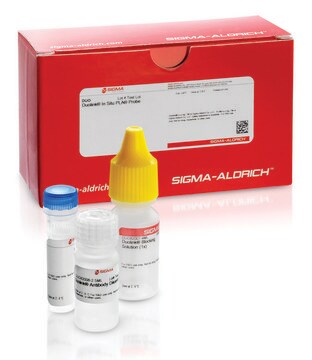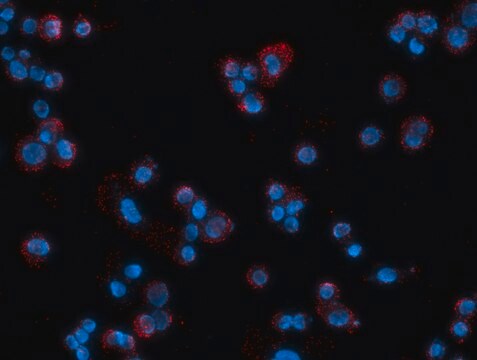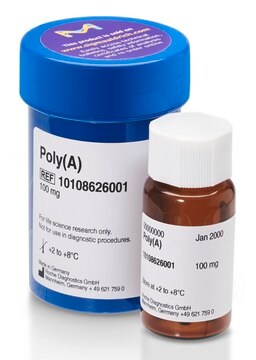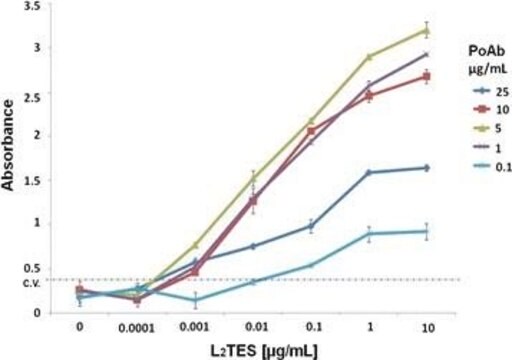DUO87002
Duolink® PLA® Probe Mouse IgG Isotype Control MINUS from mouse
suitable for proximity ligation assay
About This Item
Productos recomendados
biological source
mouse (polyclonal)
Quality Level
antibody form
affinity purified immunoglobulin (Isotype control antibody)
product line
Duolink®
technique(s)
proximity ligation assay: suitable
suitability
suitable for brightfield
suitable for fluorescence
shipped in
wet ice
storage temp.
2-8°C
General description
Application
This product can be applied to both the Duolink® In Situ Fluorescence Protocol and the Duolink® In Situ Brightfield Protocol depending on the detection reagents used.
Visit our Duolink® PLA Resource Center for information on how to run a Duolink® experiment, applications, troubleshooting, and more.
Application Note
To perform a complete Duolink® PLA in situ experiment you will need two primary antibodies (PLA, IHC, ICC or IF validated) that recognize two target epitopes. Other necessary reagents include a pair of PLA probes from different species (one PLUS and one MINUS), detection reagents, wash buffers, and mounting medium. Note that the primary antibodies must come from the same species as the Duolink® PLA probes. Analysis is carried out using standard immunofluorescence assay equipment.HRP is also available for brightfield detection.
A PLUS probe of a different species must be used simultaneously with this product. See our Product Selection Guide for more information.
Let us do the work for you, learn more about our Custom Service Program to accelerate your Duolink® projects
View full Duolink® product list
Features and Benefits
- No overexpression or genetic manipulation required
- High specificity (fewer false positives)
- Single molecule sensitivity due to rolling circle amplification
- Relative quantification possible
- No special equipment needed
- Quicker and simpler than FRET
- Increased accuracy compared to co-IP
- Publication-ready results
Legal Information
Storage Class
12 - Non Combustible Liquids
wgk_germany
WGK 2
Elija entre una de las versiones más recientes:
Certificados de análisis (COA)
It looks like we've run into a problem, but you can still download Certificates of Analysis from our Documentos section.
Si necesita más asistencia, póngase en contacto con Atención al cliente
¿Ya tiene este producto?
Encuentre la documentación para los productos que ha comprado recientemente en la Biblioteca de documentos.
Nuestro equipo de científicos tiene experiencia en todas las áreas de investigación: Ciencias de la vida, Ciencia de los materiales, Síntesis química, Cromatografía, Analítica y muchas otras.
Póngase en contacto con el Servicio técnico





